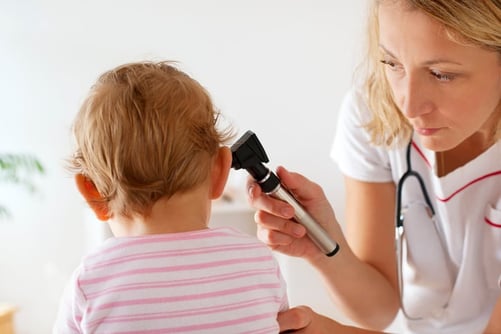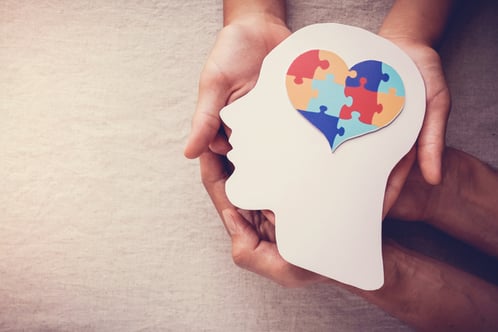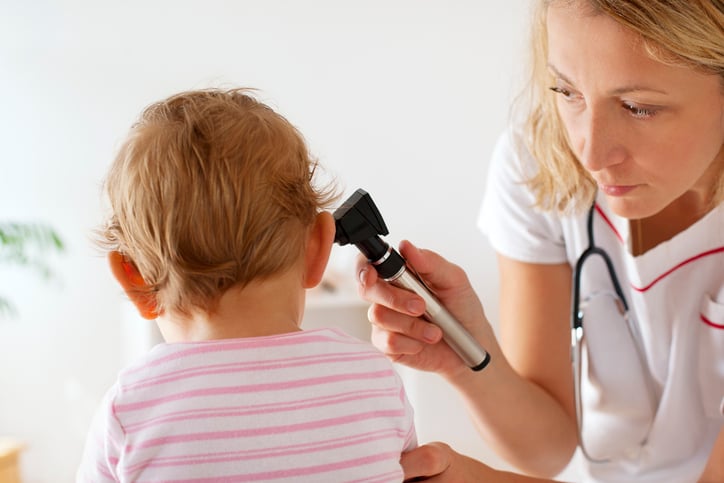New Research on Autism Spectrum Disorder
Exciting new research on Autism Spectrum Disorder (ASD) is helping us all learn more about autism. Researchers are investigating causal factors in autism, identifying early biomarkers, better understanding the social, physical, and psychological implications of autism, and suggesting intervention options to improve outcomes for autistic children. Research is also pointing the way to new treatment options for improving daily living skills and helping children succeed.
Here are 15 new research findings representing some of the most exciting discoveries, helping us better understand and provide effective interventions to support autistic children.
1. Research confirms gut-brain connection in autism.
This study looking at the gut nervous system points out why many autistic people suffer from gut issues. It indicates that these gastrointestinal problems may be caused by the same genetic mutations that are responsible for brain and behavioral issues in autism. The brain and gut share many of the same neurons and mutations that influence connections between neurons and could be behind the gut problems in many patients.
2. Nerves that sense touch may play a role in autism.
The nerves that control our sense of touch, pain, and other sensations - the Peripheral Nervous System - may play a role in autism. More than 70% of autistic people have differences in their sensory perception. This study found that autistic people had degenerated nerve fibers and were more likely to report feeling pain from a heat stimulus and could be unaware that they had gotten scratched or bruised.
3. Mindfulness improves decision-making and attention in children with autism.
This study found that high-functioning autistic students, ages 10 to 17, benefit from school-based mindfulness programs that emphasize self-awareness and controlled breathing or focusing attention on the body, thoughts, and emotions. They showed improvement in their executive functions like controlling emotions, maintaining self-control, focusing attention, and being flexible in changing their perspectives.

4. Pets may help ease the stress in parents of autistic children.
Pets lead to strong bonds and reduced stress for both autistic children and their parents. In a survey of more than 700 families from the Interactive Autism Network, parents with multiple pets reported more benefits. Pets can help increase social interaction and decrease anxiety and can help support both autistic children and their parents.
5. Music therapy improves behavior in autistic children.
Hour-long weekly music therapy sessions for over 10 months showed benefits in inattentive behaviors in autistic children. More than half of the participants in the study showed a positive effect on behaviors such as restlessness, aggression toward other children, noisiness, and tantrums.
6. Autism severity can change substantially during early childhood.
A longitudinal study in its 14th year found that around 30 percent of young autistic children have less severe autism symptoms at age 6 than they did at age 3, with some children losing their autism diagnoses entirely. Children with higher IQs and more girls in comparison to boys show an improvement in their symptoms. As part of this study, these children received substantial community-based autism intervention throughout their childhood.
7. For autistic toddlers, more intervention hours are not necessarily better.
87 autistic toddlers ages 12-30 months underwent two prominent early intervention programs delivered at 15-hours or 25-hours per week intensities. After receiving one year of interventions, assessments reveal that neither style nor intensity of intervention had a different effect overall on the study's four outcome measures: children's progress in receptive language, expressive communication, nonverbal ability, and autism symptom change.
8. Autism symptoms reduced by nearly 50 percent two years after fecal transplant.
Microbiota Transfer Therapy (MTT), a revolutionary fecal transplant technique, combined with antibiotics, a bowel cleanse, a stomach-acid suppressant, and a fecal microbiota transplant demonstrates long-term benefits for children diagnosed as autistic. 18 participants followed two years after the treatment continued to demonstrate improvements in GI symptoms, ASD symptoms, and the microbiome.
9. Characteristics differ depending on the age of diagnosis of autism.
Earlier diagnosis of autism at 12 to 18 months shows fewer impairments in behavior than in children diagnosed at a later age. Later-diagnosed children are more impaired in nonverbal reasoning, adaptive behavior, and autism spectrum disorder severity. Also, fine motor, receptive language, social skills, and communication skills impairment were proportional to the delay in diagnosis.
10. EEG signals accurately predict autism early in life.
EEGs measure brain electrical activity that can be used to predict autism spectrum disorder in infants, even in some as young as three months. The measurements are fed to the algorithms that could predict the clinical diagnosis of ASD with high specificity suggesting its potential use as a digital biomarker for early diagnosis.

11. Hearing tests may detect autism in newborns.
Standard hearing tests administered to newborns around the world can be a way to detect autism early on. The tests work by measuring auditory brainstem response (ABR), which gauges how well a baby's inner ear and brain respond to sound. Researchers found that a slower response is associated with a later diagnosis of autism.
12. Decreasing emotional self-awareness in autism as they age.
A meta-analysis of 47 papers found significantly poorer emotional self-awareness in autistic children. When observed for age groups specifically, autistic children aged 12 years and under were similar to their neurotypical peers. However, difficulties emerged during adolescence and increased with age.
13. Autistic identity in adolescence is influenced by parent’s perception of autism and their decision to disclose this information.
Parents’ decision to either disclose or withhold an autism diagnosis from their children impacts adolescents’ perceptions of autism and their identity development. Findings suggest that mindful disclosure, early in their development, can help children develop a more positive, neurodiversity-aligned perspective in autistic children.
14. Disparities in diagnoses of Autism Spectrum Disorder.
Several factors are associated with a disproportionately lower clinical diagnosis of autism spectrum disorder (ASD) like non‐White race, no intellectual disability, older age at first developmental concern, older age at first developmental evaluation, special education eligibility other than ASD, and need for fewer supports. This gap needs to be addressed so that appropriate intervention can be made available as early as possible.
15. High incidence of mental health conditions among autistic children.
Nearly 78 percent of autistic children have at least one mental health condition. The most common are behavior/conduct problems, anxiety, attention deficit disorder (ADD)/attention-deficit/hyperactivity disorder (ADHD), and depression. These conditions increase with age and raise a need for effective assessment and treatment.

This article is based on studies published in several leading autism research journals and from the Science Daily website.
Have you read any interesting research on autism lately? Please share in the comments section below!
References
- Jennifer Fouquier, Nancy Moreno Huizar, Jody Donnelly, Cody Glickman, Dae-Wook Kang, Juan Maldonado, Rachel A. Jones, Kimberly Johnson, James B. Adams, Rosa Krajmalnik-Brown, Catherine Lozupone. The Gut Microbiome in Autism: Study-Site Effects and Longitudinal Analysis of Behavior Change. mSystems, 2021; 6 (2) DOI: 10.1128/mSystems.00848-20
- See: https://www.aan.com/PressRoom/Home/PressRelease/3827
- See: https://www.rutgers.edu/news/mindfulness-improves-decision-making-attention-children-autism
- See: https://showme.missouri.edu/2020/stress-in-parents-of-children-with-autism-pets-may-help/
- Universiti Putra Malaysia (UPM). "Music therapy improves behavior in children with autism, study suggests." https://www.sciencedaily.com/releases/2013/02/130219140100.htm
- Einat Waizbard-Bartov, Emilio Ferrer, Gregory S. Young, Brianna Heath, Sally Rogers, Christine Wu Nordahl, Marjorie Solomon, David G. Amaral. Trajectories of Autism Symptom Severity Change During Early Childhood. Journal of Autism and Developmental Disorders, 2020; DOI: 10.1007/s10803-020-04526-z
- See: https://www.psychreg.org/toddlers-autism/
- Dae-Wook Kang, James B. Adams, Devon M. Coleman, Elena L. Pollard, Juan Maldonado, Sharon McDonough-Means, J. Gregory Caporaso, Rosa Krajmalnik-Brown. Long-term benefit of Microbiota Transfer Therapy on autism symptoms and gut microbiota. Scientific Reports, 2019; 9 (1) DOI: 10.1038/s41598-019-42183-0
- Einat Waizbard-Bartov, Emilio Ferrer, Gregory S. Young, Brianna Heath, Sally Rogers, Christine Wu Nordahl, Marjorie Solomon, David G. Amaral. Trajectories of Autism Symptom Severity Change During Early Childhood. Journal of Autism and Developmental Disorders, 2020; DOI: 10.1007/s10803-020-04526-z
- William J. Bosl, Helen Tager-Flusberg, Charles A. Nelson. EEG Analytics for Early Detection of Autism Spectrum Disorder: A data-driven approach. Scientific Reports, 2018; 8 (1) DOI: 10.1038/s41598-018-24318-x
- Oren Miron, Rafael E. Delgado, Christine F. Delgado, Elizabeth A. Simpson, Kun‐Hsing Yu, Anibal Gutierrez, Guangyu Zeng, Jillian N. Gerstenberger, Isaac S. Kohane. Prolonged Auditory Brainstem Response in Universal Hearing Screening of Newborns with Autism Spectrum Disorder. Autism Research, 2020; DOI: 10.1002/aur.2422
- Huggins, C. F., Donnan, G., Cameron, I. M., & Williams, J. H. (2021). Emotional self-awareness in autism: A meta-analysis of group differences and developmental effects. Autism : the international journal of research and practice, 25(2), 307–321. https://doi.org/10.1177/1362361320964306
- Riccio A, Kapp SK, Jordan A, Dorelien AM, Gillespie-Lynch K. How is autistic identity in adolescence influenced by parental disclosure decisions and perceptions of autism? Autism. 2021;25(2):374-388. doi:10.1177/1362361320958214
- Lisa D. Wiggins, Maureen Durkin, Amy Esler, Li‐Ching Lee, Walter Zahorodny, Catherine Rice, Marshalyn Yeargin‐Allsopp, Nicole F. Dowling, Jennifer Hall‐Lande, Michael J. Morrier, Deborah Christensen, Josephine Shenouda, Jon Baio. Disparities in Documented Diagnoses of Autism Spectrum Disorder Based on Demographic, Individual, and Service Factors. Autism Research, 2019; DOI: 10.1002/aur.2255
- Connor M. Kerns, Jessica E. Rast, Paul T. Shattuck. Prevalence and Correlates of Caregiver-Reported Mental Health Conditions in Youth With Autism Spectrum Disorder in the United States. The Journal of Clinical Psychiatry, 2020; 82 (1) DOI: 10.4088/JCP.20m13242
.jpeg)
Preksha Singh
Preksha is an interdisciplinary educator blending cognition, neuroscience, and education practices. She has worked across several research projects at the EASEL Lab, Harvard GSE on the Socio-Emotional Learning(SEL), and at CAST on personalizing reading and learning experiences based on emotion sciences. She also worked as a coach, counselor, and teacher in public and private schools in India. She holds a Master of Education degree in Mind, Brain, and Education from the Harvard Graduate School of Education, USA, and a Bachelor of Engineering from the University of Mumbai, India.




